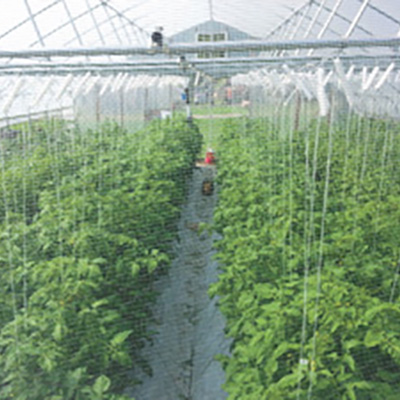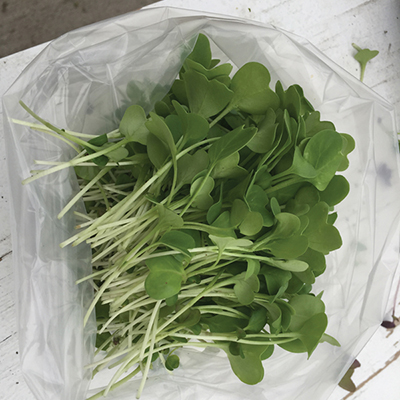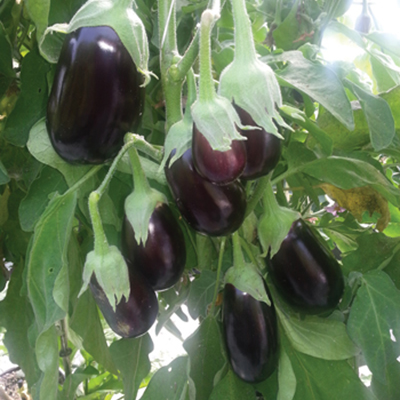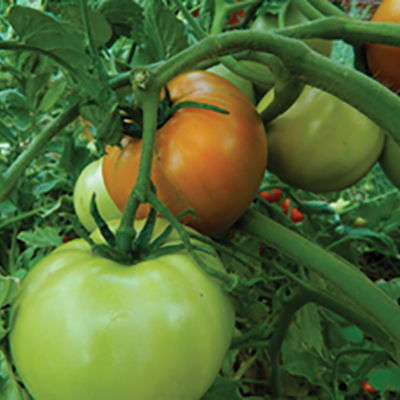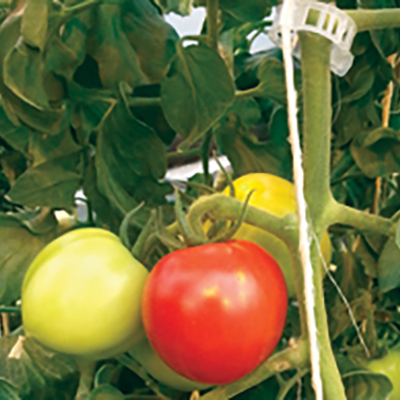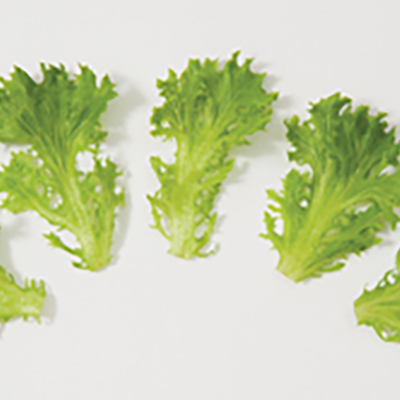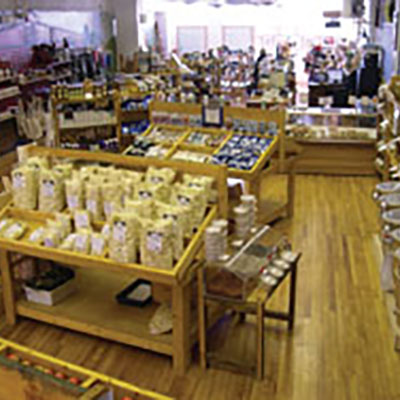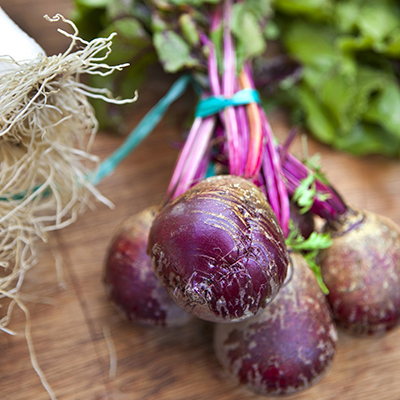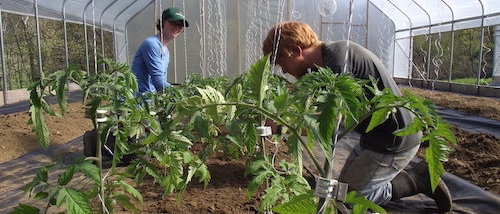In 2004, my wife Ann and I had moved across the country from our previous apprenticeship in Pennsylvania to work on a farm in California. It seemed like the perfect situation for two young people learning how to start their own farm. The farmers knew everything we wanted to know. We had visited the farm and several others in advance and, after weighing the options, we settled on this one. Due to the Mediterranean climate in that part of California, we could start right away in January, pruning the organic olive orchard on the farm. What better way could there be to spend the rest of the winter?
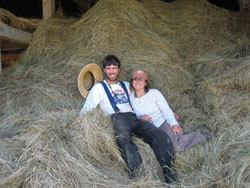
It all went downhill from there. While learning a lot, strong personality conflict made us unhappy on a daily basis and wonder if we were in the wrong place. But we had just moved 3,000 miles with our hopes for the summer and our farming future pinned on the knowledge and experience we thought we would gain in this new place. With a hope of honoring our commitment, we slogged it out for awhile.
One day in April we walked into the farmhouse. A copy of Growing for Market sat on the table. The cover story read “How to have happy interns” (April 2004). We told the farmers we were leaving and offered to stay until they found someone else. We spent the rest of the season working on a farm in Washington State.
Fast forward six years. We have apprenticed our way across Pennsylvania, California, Washington, Virginia, New York, and Maine. Our own produce and livestock farm was taking root in central Maine. After our first year in 2009 with only part-time help, it was clear that we needed more labor in the 2010 growing season. We set out to find our first full-time, season-long apprentice. One strong candidate contacted us in February. He had farm experience and desire to learn our type of farming. He asked us for a commitment to hire him for the coming season.
Even though it was February, with more apprentice applications to come, he seemed like the right person for the job. We hired him. He showed up and quit within two weeks.
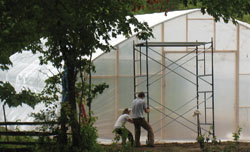
Turns out he had a girlfriend back at home that he missed more than he thought he would. That left us in a jam, but wecobbled the rest of the season together with short-term apprentices, and it worked out well. We realized that we enjoyed the periodic infusion of energy that new part-time workers bring. We’ve learned to ask people if they are going to be able to be away from the relationships they have at home. Or if they have ever lived away from home before.
Apprenticing is an indispensable way of life on modern market farms. It forms the connection between farmers who have more work than they can possibly do, and people who are interested in learning how to farm. Apprentices provide the extra energy and the farmers provide the skill. If all goes well, by the end of the season each is richer for the experience.
Farm apprenticeship has a different dynamic than most jobs and needs to be handled accordingly. Making an apprenticeship work is a balancing act, since some of the compensation is usually in the form of learning or other intangibles besides money. The apprenticeship does not usually have as much financial incentive as a “regular job” to keep people in a job they don’t like. So if apprentices decide they don’t like farming — or your farm — as much as they thought they would, they may not stay.
In this article I will share some of the insights we have gained from being involved on one side of the equation or the other for the last decade. First, I’d like to say that I prefer the term apprentice over intern. Apprentice has the connotation of learning a venerable art or craft from an accomplished practitioner. The connotations for intern fall somewhere between Lewinsky and making copies. But I digress.
When we think about our seasonal labor, they fall into two categories. Usually we try for season-long apprentices, so they can start learning skills at the beginning of the year and apply them all year long. They generally work full time, five days a week plus farmers market. Our other category is what are called “Woofers,” after Worldwide Opportunities on Organic Farms (WOOF, see resources below).
WOOF’s self-described goal is to be “part of a worldwide effort to link volunteers with organic farmers, promote an educational exchange, and build a global community conscious of ecological farming practices.” Whether they actually came to us through WOOF or not, we call our short-term, part-time volunteer farm help Woofers. They are a blend between agritourists and volunteers.
On our farm these people volunteer their work for a half day, in exchange for room and board. In the other half of the day they can enjoy the great outdoors, take the canoe down the creek, explore beautiful central Maine, or whatever they want. It’s a great way for someone to see a part of the country cheaply and learn about farming as long as they are willing to work hard for part of their time. As noted above, these people have come in handy for us in some times of need.
One of the most important principles for successful farm apprenticeships is clarity. Especially since the prospective workers may have little or no farm experience, don’t over-romanticize your farm, or they may be disappointed when they show up and have to work hard. Yes, you may have a gorgeous view, and the natural beauty is a bonus. Be sure to emphasize that this view may most often be experienced with a hoe handle in hand. If apprentices realize what they are getting into, it is more likely to work out.
Teaching skills
Another area that demands clarity once apprentices are on the farm is in instruction. We worked for one farmer who told us, “It’s my job to set you up for success.” What he meant was that he needed to show us how to do it right before we could do the job. This may sound obvious but if someone has never done a job before, there are plenty of ways to do even simple jobs the wrong way. One farmer we worked for sent us out to pick okra. We had never picked okra before and he wasn’t coming with us. We asked him how small he wanted it picked. He gave a vague answer. I think he knew how big he wanted it but it was hard for him to verbalize. We resorted to saying, “bigger or smaller than your thumb?” “About the size of your thumb, any bigger than that and it starts getting woody,” came the answer, and we were off with a new understanding of why and how to pick okra.
The point is, what may be patently obvious to the farmer may not be to an inexperienced worker. It is more satisfying for everyone if expectations are clear. You are more likely to get what you want done if things are well explained. This may mean asking your apprentices to carry a notebook if there are a lot of instructions. And giving them an idea of what the job should be like if you can’t be there. What do you expect to happen? How long should it take? Be clear with the expectations up front.
One technique we have found that helps our apprentices have “farmer mind” is to put the task of the moment into the context of the rest of the day, week, and season. Our apprentices did not understand why we were always hurrying on to the next thing. When they saw how incredibly long our to-do list always is, they understood that the task at hand was not an isolated job. They realized that the jobs on our farm are like dominoes, and if one takes longer than necessary, it falls on all the other jobs behind it and pushes them back too.
Compensation
Another area that demands clarity is compensation. Are they working for the experience plus room and board? Is any or all food included? Just staples? Just food from the farm? Hourly wage? Stipend? A stipend that goes up gradually over time? A stipend that increases given certain levels of proficiency or goals met? Any or all of these are common ways of handling compensation on farms, and they need to be clearly defined ahead of time. Nothing builds resentment like doing what was asked and then not receiving what was promised. Another possibility is to offer a year-end bonus to workers who make it to the end of the season or whatever period was originally contracted.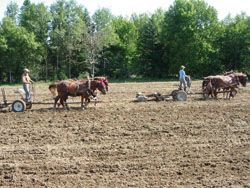
Whatever your compensation structure, keep in mind that it’s a give-and-take. If your apprenticeship offers more on the learning, accommodation, recreational or other benefits, you may be able to offer less on the financial side. On the other hand if you don’t offer much of any of those benefits, maybe what you really need is closer to paid hourly labor if all you want them to do is go out and weed or harvest for days on end.
The old saw “two is one and one is none” applies to apprentices. If you can’t possibly be without at least one apprentice, hire two. If you can afford it, hiring one more than you need will ease those times when someone is sick or has a family event that takes them away from the farm. If you end up having one more apprentice than you absolutely need all season long, it’s a farm, it’s not likely that you’re going to run out of things to do.
Another consideration is that groups of two or less tend to integrate into the farmer’s family more, and groups of three plus tend to form their own group. Couples tend to behave more independently like a group of three. This is worth keeping in mind depending on how integrated or aloof you want your apprentices to be from your family. The group size and dynamic is very important in isolated settings where the group, such as it is, will be the source of companionship for each other.
Finding apprentices
The places to look for apprentices are through your state or regional organic certifying agency, Grow Food (www.growfood.org), World Wide Opportunities On Organic Farms (www.wwoof.org), ATTRA (https://attra.ncat.org/attra-pub/internships/) and social media like advertising on Facebook and your website. We use a basic job application plus a few questions to try to grasp an applicant’s experience and attitude. If we’re interested, we do a phone interview and preferably have them visit the farm. The things we look for are farm experience and a desire to start their own or work on a farm long-term, since they will be invested in learning the work by doing.
These are not the only people who will do well, though. We have had great luck with local food eaters who may want to spend some time on a farm. We just need a willing attitude, a strong body and concern for the success of the farm. We have a theory we can’t prove that successful restaurant experience may be an indicator of good farm help.
Since survival in a restaurant depends on dealing with people, remembering many small details, working quickly and nimbly, being on your feet all day in a high-stress atmosphere with a smile, on a schedule not your own. Other work experience that may be promising include other kinds of outdoor or hard work, or any work that required attention to detail and efficiency. Unfortunately, there is no indicator for common sense and, as they say, there’s nothing common about it.
A lot of the potential apprentices these days may be college educated or otherwise may not have ever worked very hard, though they may be eager to do so. You may be in the business of instilling the first work ethic in these people. Keep in mind that work ethic can be learned. Do it gracefully and people who do not have it may rise to the occasion.
Begin the season as you intend to continue. Try to set the pace early. You can’t spring new demands on workers mid season and expect it to go well. If the beginning of the season is slow, and they start out thinking it’s a cake walk, they’ll be disgruntled when the real work starts. Prime them by explaining the flow of the season. Let them know they should enjoy the slower pace while it lasts, and warn them it will get busier. The same thing goes for the quality of the work. If it is not up to your standards early in the season, that’s the time to set the standard.
Another thing that can help you stay on good terms with your apprentices is being sensitive to their state of mind. Give them a surprise afternoon off if you know they are going through a tough time personally or otherwise. Add some fun. Turn on some music or bring them a root or regular beer when the going is getting tough. Realize when the slumps in morale happen and try to counteract that. If they are working above and beyond the call of duty, treat them like they are.
Realistic expectations
One last thing to keep in mind as the farming season intensifies is that no one is going to work as hard as you are for your own farm. Expecting apprentices to do so will frustrate everyone involved - you when they don’t keep up with you, and them for being expected to. Though there may be long, hard days with unusual hours, apprentices need predictable days off, which is a luxury you may not be able to afford yourself. But it’s your farm. Workers need time off to have a life. If you have a farm, it probably is your life. I’m not saying we don’t ever ask apprentices to work on a day off, but we always compensate them with another day off, and try to keep this practice to a minimum for emergency situations.
With all this in mind, good luck with this year’s crops and the crop of apprentices. May the institution of apprenticeship continue to thrive. It’s how Ann and I learned to farm, and now it’s how we get a lot of work done on our farm.
Andrew Mefferd is the Editor of Growing for Market magazine and still farms in Maine.

